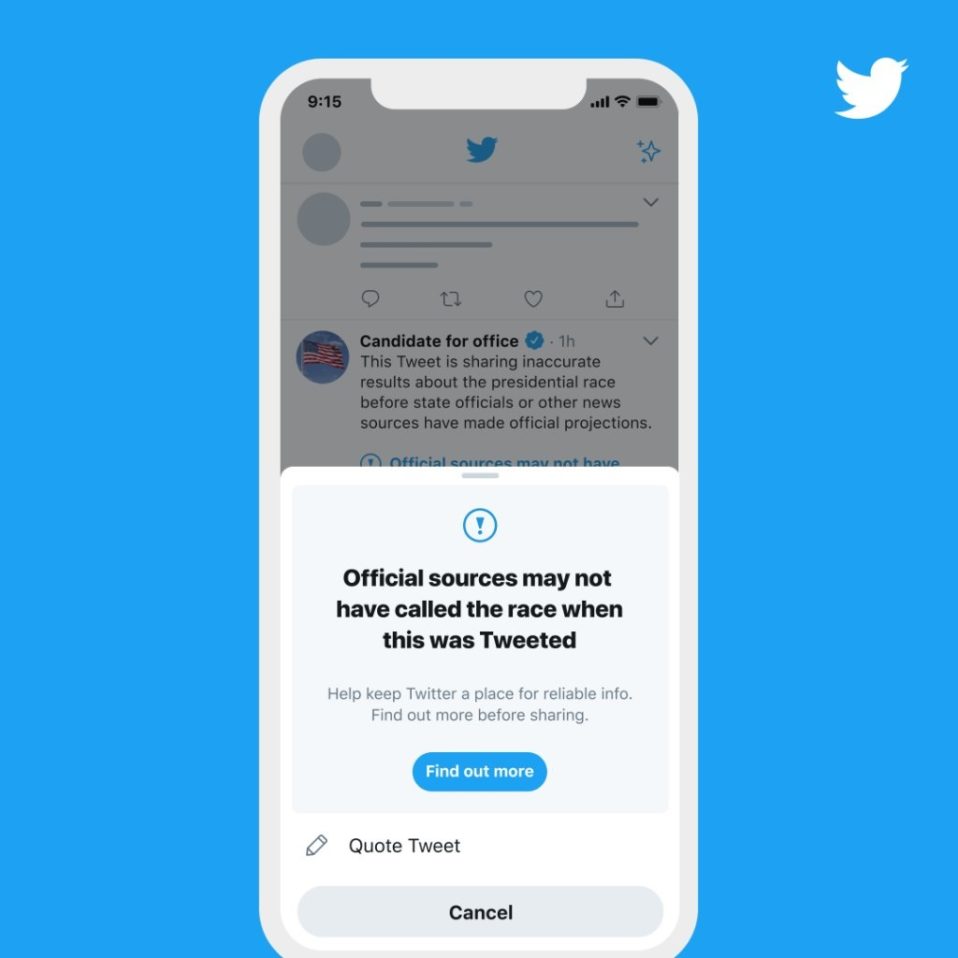Election day in the United States has become an election week. Disinformation has been besieging us from all sides for several months already. That forced many sites and platforms to engage in an active fight against false information. This year, as never before, many ways have been developed to deal with posts that contain false facts, sending a hashtag to a ban, blocking bots, and much more. Let’s take a closer look at how social networks solve problems with incorrect information.
Today platforms such as Facebook, Twitter, YouTube, and others have implemented AI technologies to check facts. Introducing this approach, President Trump has many problems, and all because he regularly posts his lies on Facebook and Twitter. After the elections, the people who support him are trying in every possible way to spread information about his victory wherever possible.
To combat some of the misinformation about the elections, Facebook requires a link to trusted sources in election messages. This requirement came about because IGTV videos – both those containing campaign content and those that have election disinformation – do not contain links to authoritative sources.
“Instagram video content is subject to third-party fact-checking and must comply with our Community Guidelines,” a Facebook spokesperson said. “We have various tools at our disposal to slow down the distribution of content that is judged to be false by fact-checking, or completely remove if it violates our policies.”
Video moderation is not only a problem for IGTV. There have been quite a few cases where election disinformation was spread with partial or no verification on Facebook Live and YouTube. These platforms are now actively developing mechanisms for video moderation.
The fight does not end there. Facebook is now considering introducing “extra clicks or two – before people can share messages and other content.” For those who believe in conspiracy theories like #SharpieGate and QAnon, this should be a deterrent.
As for Twitter, the company has also prepared a plan to combat the spread of premature, unverified, or false election results. The first thing to do is to warn tweets that spread misinformation. If they try to retweet misinformation about the election results, they will receive a notification with a warning and a link to additional information.
Tweets will be considered “reliable” after at least two authoritative sources have announced the results.
Platforms and social media have been preparing for the disinformation problem for months and yet have not entirely overcome the problem. To this day, work is underway to avoid this problem in the future. Nevertheless, fact-checking is increasingly attracting many companies’ attention. Thanks to this tool, it is possible to check even those publications that have been deleted but remain in the archives of the network.

How do you feel about the fact that social networks have taken such measures to combat disinformation?


